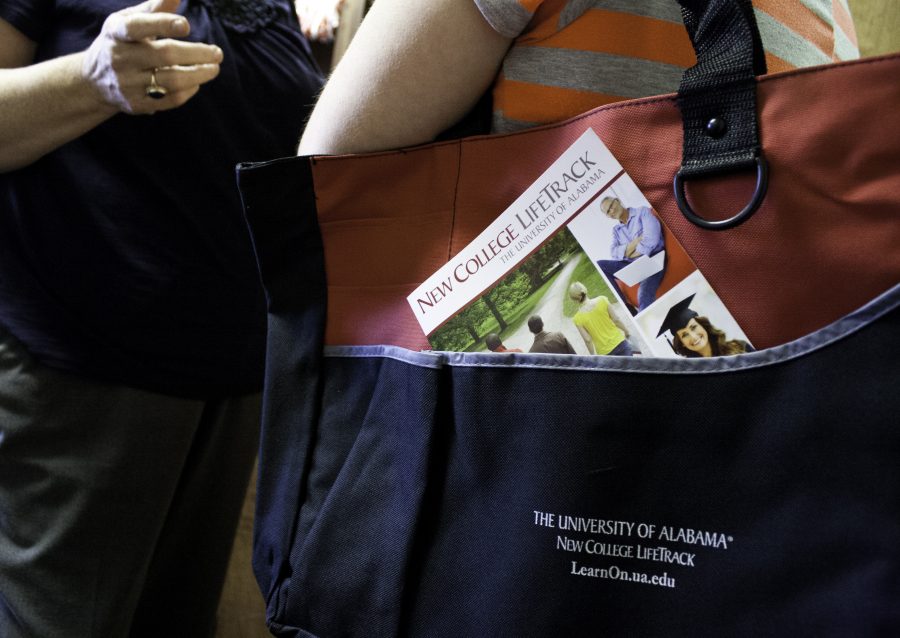Nestled in the back of Martha Parham, the University of Alabama Life Track program is where adults find their second chance for an education. This distance-learning program helps the University’s faculty who never completed their degrees, adults pursuing a higher education for the first time, or anyone who wants to earn a degree from the University.
“Believe it or not, we have some students that just want a degree from the University of Alabama!” said Life Track advisor Lisa Young.
The program is degree rewarding and is an extension of the Arts and Sciences department. Students range in age from as young as 25 to as old as 80.
“We have a lot of students who are completing their degrees for intrinsic reasons. They are already establish or are retired, but they are inspired to continue their education. I think that’s just as good of a reason as someone who is being forced back into the workplace,” Young said.
Jeff Clement, a Life Track graduate, had started his degree at University of Southern California but was drafted to the Seattle Mariners baseball team before he completed his degree. After his baseball career ended, he looked at different programs for completing his degree.
“Because it’s online and distance learning there is a lot of reading and writing that you have to do, but my reading and writing skills have greatly improved as a result, and that in turn has been very helpful in my career today,” Clements said.
Although all of the Life Track students are balancing jobs, family life and studying, the average grade point average for these students tends to be higher that traditional students.
“A portion of our students just have a dream. They’ve always want a degree. They’ve promised their mother they will get a degree. They want to be a good example for their kids. Every student has a unique story,” said program manager Ana Schumer.
“It’s the one program that I came across where the people are really working with you and not against you. I felt like the people I met at UA through orientation and the Life Track program were really there to help every student achieve their goals,” Clements said.
The Life Track program is unique in that it allows the students to pull courses from different disciplines to essentially create their own major.
“I have one student who’s been in the military and is now transitioning back into civilian life, and that’s a hard process. So for his senior project he is focusing on the transitioning process from military to civilian life, and I think it’s going to be a good one!” Young said.
Before earning their degree, students must complete a senior project on any subject they choose.
“I’ve seen them on everything from starting businesses to genealogy projects. One that especially stood out was the use of hot air balloons in WWII. I learn a lot from these projects. It really gives a different perspective,” Young said.
Students are also given the opportunity to take classes on the weekends so that they can experience a traditional classroom setting and meet other students who are in similar situations.
“Everyone comes from different backgrounds, but once you are a little bit older and you are actually looking to get a degree, I think you take a lot more ownership of it,” Clements said.
“They have the advantage of maturity. They often didn’t do well in classes in their early years, but now as an adult, they really understand the value of an education,” Schumer said.
As one of the oldest distance-learning programs on campus, the University Life Track program proves that people are never to old to continue learning.









